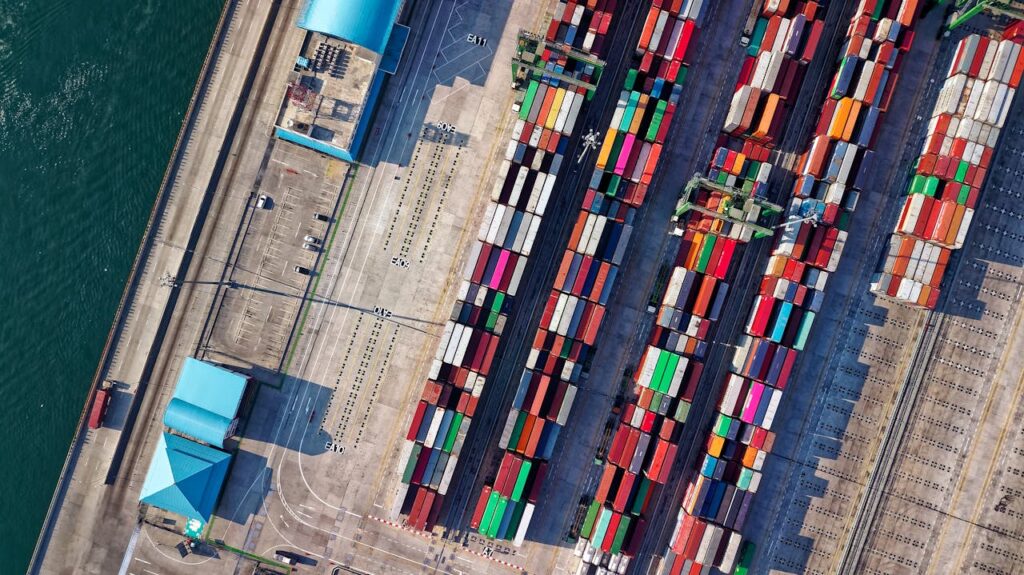IITHE Level 5 Diploma in Logistics and Supply Chain Management

Overview
The IITHE Level 5 Diploma in Logistics and Supply Chain Management is designed to provide learners with comprehensive knowledge and practical skills in the management of logistics and supply chain operations. This qualification equips learners with the ability to analyze, manage, and optimize supply chain processes, ensuring efficient movement of goods and services from suppliers to customers. The diploma covers strategic, operational, and managerial aspects of logistics and supply chain management.
Graduates of this diploma will be well-prepared to handle complex logistical challenges and contribute to the development and implementation of effective supply chain strategies.
Entry Requirements:
- Age Requirement: Learners must be at least 18 years old.
- Educational Qualifications: A Level 4 Diploma in Logistics, Supply Chain Management, or a related field or equivalent qualification.
- Work Experience (optional): Mature learners (21 years and older) with relevant work experience in logistics or supply chain management may apply.
- English Language Requirements: Learners whose first language is not English must provide proof of English proficiency.
Qualification Structure:
The IITHE Level 5 Diploma in Logistics and Supply Chain Management comprises 12 mandatory units, totaling 120 credits. The qualification covers key areas of logistics and supply chain management, from strategic planning to operational execution.
Mandatory Units (12 Units):
- Supply Chain Management Fundamentals (10 credits)
-
- Introduces the principles and practices of supply chain management, including key concepts and terminology.
- Logistics and Operations Management (10 credits)
-
- Focuses on the management of logistics operations, including transportation, warehousing, and inventory control.
- Strategic Supply Chain Planning (10 credits)
-
- Covers the development of strategic plans for optimizing supply chain performance and aligning with organizational goals.
- Procurement and Supplier Management (10 credits)
-
- Examines the processes of procurement, supplier selection, and relationship management.
- Inventory and Warehouse Management (10 credits)
-
- Teaches methods for effective inventory control and warehouse operations management.
- Transport Management (10 credits)
-
- Provides insights into transportation management, including logistics planning, carrier selection, and route optimization.
- Global Supply Chain Management (10 credits)
-
- Explores the complexities of managing global supply chains, including international trade, customs, and global logistics.
- Risk Management in Supply Chains (10 credits)
-
- Focuses on identifying and mitigating risks within supply chains to ensure operational continuity.
- Data Analysis for Logistics (10 credits)
-
- Teaches techniques for analyzing logistics data to make informed decisions and improve efficiency.
- Sustainable Supply Chain Management (10 credits)
-
- Examines sustainability practices and their application in supply chain management.
- Technology in Supply Chain Management (10 credits)
-
- Covers the role of technology, including software and systems, in enhancing supply chain operations.
- Research Project in Logistics and Supply Chain Management (10 credits)
-
- A practical research project where learners apply their knowledge to investigate a specific issue or challenge in logistics and supply chain management.
Duration and Delivery:
The IITHE Level 5 Diploma in Logistics and Supply Chain Management offers flexible learning options to accommodate different schedules.
- Full-time Study: Typically completed within 18-24 months.
- Part-time Study: Duration can be extended based on personal commitments.
- Blended Learning: Includes classroom-based instruction combined with online resources.
- Distance Learning: Available for learners who prefer to study remotely, with digital materials and virtual support.
Assessment and Verification:
- Internal Assessment: Learners are assessed through a variety of methods, including assignments, case studies, practical projects, and examinations. Each unit has specific learning outcomes and assessment criteria.
- Practical Assessments: Some units require hands-on assessments or projects to demonstrate practical application of knowledge.
- External Verification: The diploma undergoes external verification to ensure that assessments meet academic and industry standards.
To achieve a pass, learners must meet all the learning outcomes and assessment criteria for each unit. The qualification is criterion-referenced, meaning learners are assessed based on their ability to meet defined standards.
Progression Opportunities:
Upon successful completion of the IITHE Level 5 Diploma in Logistics and Supply Chain Management, learners can pursue various pathways for further academic and professional development:
- Further Study: Progress to Level 6 qualifications in Logistics and Supply Chain Management or related fields, or pursue a Bachelor’s degree in Supply Chain Management or Logistics.
- University Progression: Graduates may apply for direct entry into the second or final year of a relevant Bachelor’s degree program.
- Professional Certifications: Learners can obtain additional certifications in supply chain management or logistics, such as those offered by professional bodies like the Chartered Institute of Logistics and Transport (CILT).
- Career Opportunities: The diploma prepares learners for a range of roles in logistics and supply chain management, including:
- Supply Chain Manager
- Logistics Coordinator
- Procurement Specialist
- Warehouse Manager
- Transport Manager
- Inventory Analyst
- Operations Manager
The IITHE Level 5 Diploma in Logistics and Supply Chain Management provides the skills and knowledge needed to excel in the dynamic field of logistics and supply chain management, offering both practical expertise and strategic insights.
